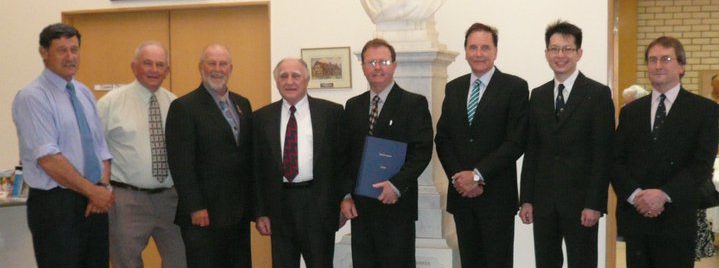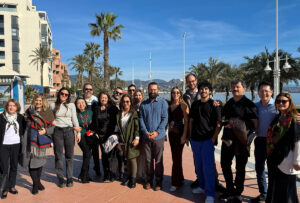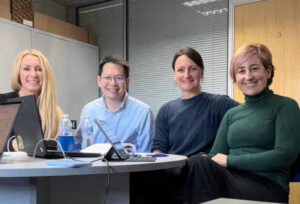
Dr Ian Cooper gained a Phd in Epidemiology at Warnborough College, leading to groundbreaking research in the study of Parkinson’s disease. He is currently a lecturer in Chemistry and Physics at Taylor’s College, University of Sydney.
Dr Cooper has written a short retrospective review of his doctorate research and about how Warnborough helped him to achieve his goals.
One of the many benefits of the Warnborough College approach to education is its agility and rigour. In our contemporary information environment, we experience confusion between fact-based information, and what is now being called ‘fake news’. Warnborough College supported my research by ensuring the time-honoured standards of truth based on testable fact, with flexible ground-breaking methodologies.
Parkinsonism
My doctorate thesis entitled Parkinsonism in Australia was a study of a range of illnesses that displayed similar symptoms and which responded to similar treatments. For example, a rigid study of Parkinson’s disease would include only idiopathic Parkinson’s disease and not Parkinson’s disease brought on by a stroke or brain tumour; even though the symptoms and treatments are the same. Warnborough College, unlike some Australian universities at the time, was flexible and understood that the research had to include all types of Parkinson’s disease to test the epidemiological methodology I had in mind. Therefore, the study had to be of Parkinsonism.
Parkinsonism is any illness that displays some idiopathic Parkinson’s disease symptoms, but more importantly, responds to Parkinson’s disease drug treatments. This in particular, includes the L-Dopa drugs used to treat idiopathic Parkinson’s disease during its more progressive stage. Thus, the study was a pharmaco-epidemiological study, where the incidence and prevalence of Parkinsonism was determined by medication sales data. This was crossed-referenced to Local Government Areas (LGA) and age-demographical dates of birth.
Warnborough’s role

To complement this innovation, Warnborough insisted on the highest rigour of data purity acquired at significant expense from the Australian Government. Furthermore, any findings made using this new methodology had to be cross-referenced with incidence and prevalence data obtained by traditional epidemiological methods.
The Warnborough College approach involved the formation of a team to achieve the goal. This was myself as the PhD student, supported by two mentors; Dr James Selby OAM and Dr Con Diamond OAM, both of The Central West of New South Wales Parkinson’s Disease Research Group. The supervisor was Dr Simon Hammond OAM. This team was thus made up of a psychologist, pharmacist and a neurologist /epidemiologist — formidable intellectual support, which ensured a quality result.
Outcome
The resultant PhD thesis showed the following:
- The pharmaco-epidemiological methodology employed was sound.
- There were clusters of statistically significant higher incidences of Parkinsonism in some LGAs in Australia, which could not be explained by either low population effect or age factors.
- These abnormally higher areas of incidence were in rural areas.
Without Warnborough College, none of this could have been achieved, and my gratitude is deep and eternal.
Dr Ian Cooper
Lecturer of Foundation Chemistry and Physics
Taylor’s College; University of Sydney
Australia
Dr Ian Cooper undertook a PhD by Research. Take a look at our graduate degree programs here:





